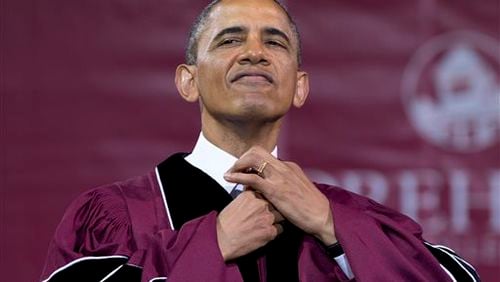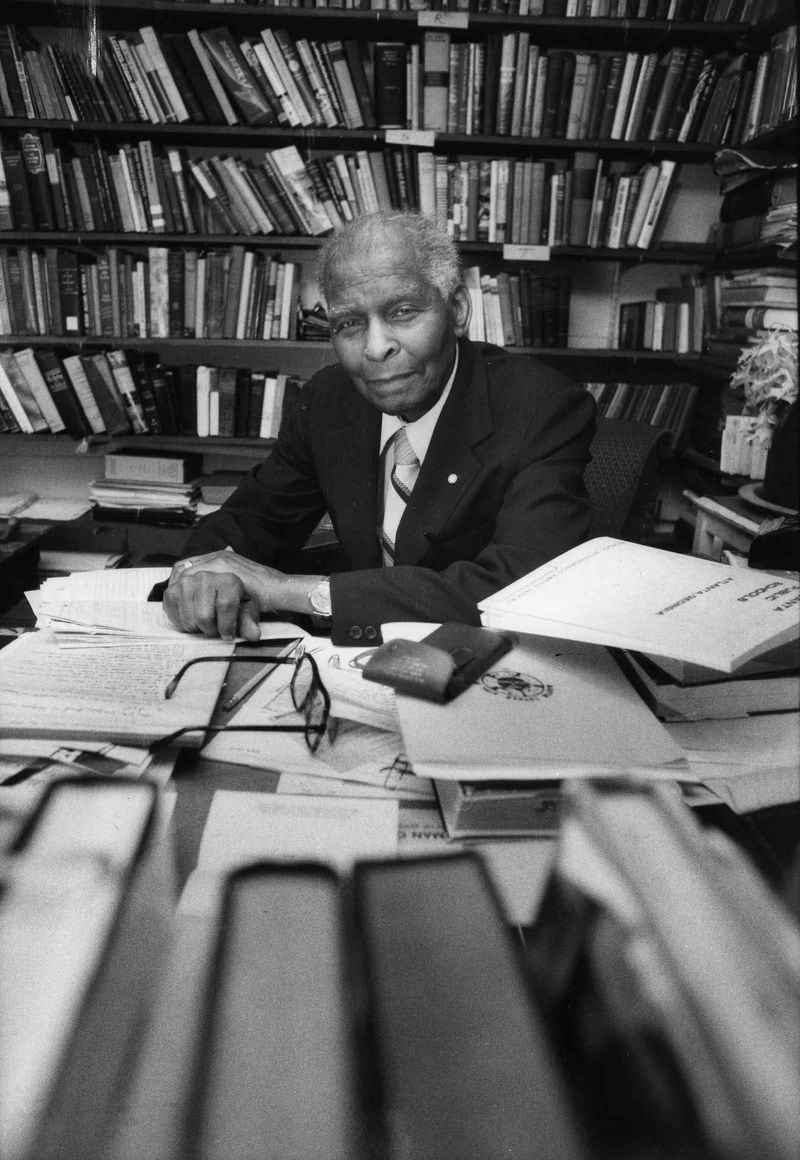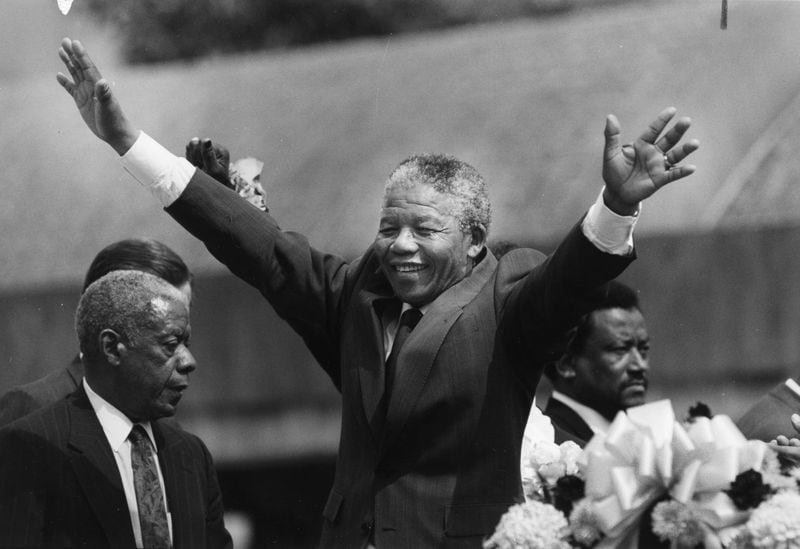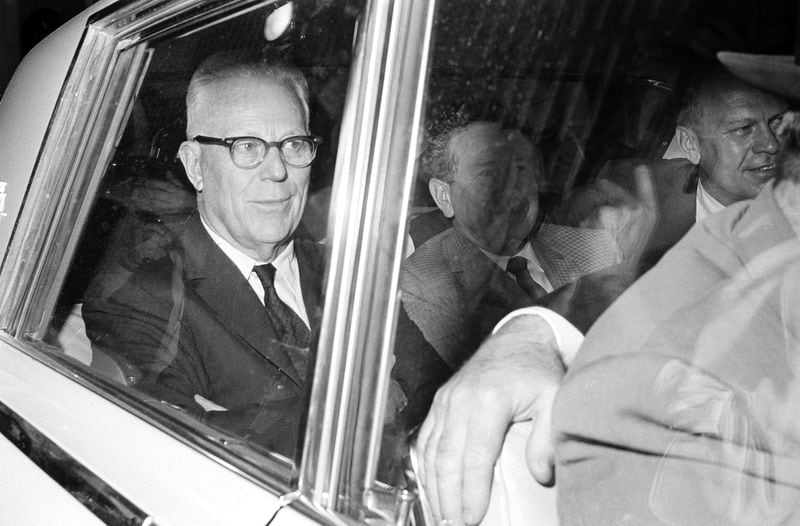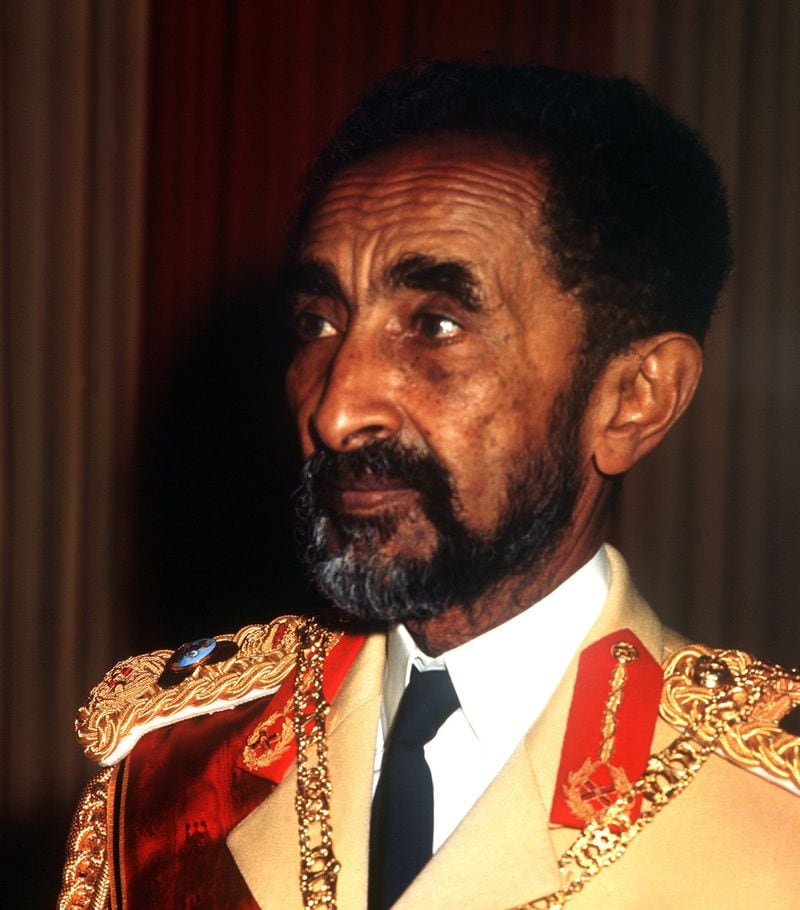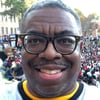As exciting as it will be for the Morehouse College community to welcome former President Barack Obama to campus on Friday to stump for Democratic gubernatorial candidate Stacey Abrams, attracting big-name speakers is kind of old hat for the Atlanta-based historically black college.
In its 151 years, Morehouse has seen and heard its share of important speakers — from W.E.B. Du Bois to Desmond Tutu to Paul Robeson to Adam Clayton Powell Jr. to its most important graduate, Martin Luther King Jr.
“We are standing on the shoulders of all the people who built the prestige of the schools,” said Lawrence E. Carter, dean of the Martin Luther King Jr. Chapel at Morehouse College. “Morehouse has been an incubator for so many drum majors for justice with harmony and respect for humanity. Morehouse has tried to not just preach and lecture, but to be the thing itself. There is no way to peace, as Gandhi said. Peace is the way.”
Here are five important speeches and events that helped to shape Morehouse:
"No time for excuses": Barack Obama, 2013 Commencement
In 2013, then-President Obama braved a stormy day in Atlanta to tell the Morehouse graduates that African-Americans need to break free from past challenges of racism to succeed in a globally competitive economy.
"We've got no time for excuses. Not because the bitter legacies of slavery and segregation have vanished entirely; they have not. Not because racism and discrimination no longer exist; we know those are still out there. It's just that in today's hyperconnected, hypercompetitive world, with millions of young people from China and India and Brazil — many of whom started with a whole lot less than all of you did, all of them entering the global workforce alongside you — nobody is going to give you anything that you have not earned," Obama said. "Nobody cares how tough your upbringing was. Nobody cares if you suffered some discrimination. And moreover, you have to remember that whatever you've gone through, it pales in comparison to the hardships previous generations endured, and they overcame them. And if they overcame them, you can overcome them, too.”
In some circles, the speech was criticized as being too focused on African-American shortcomings.
Benjamin E. Mays’ Centennial Commencement Address, May 30, 1967
Credit: AJC FILE
Credit: AJC FILE
Legendary and longtime Morehouse president Benjamin E. Mays, who had led the school since 1940, warned the graduates about the influence of liberal whites, particularly those in Atlanta. Mays, who would retire in 1967, said, “The Atlanta community has accepted no responsibility for the financial health and development of (the then-six historically black colleges and universities in the city) despite the fact that we spend millions here each year and provide leadership for the South and the nation.”
“Discrimination in the future will not be determined by poor whites and the people who believe in segregation, but by liberals who believe in a desegregated society but not an integrated society,” Mays said. “The Negro’s battle for justice and equality in the future will not be against the Wallaces, the Barnetts and the Maddoxes. But against the subtlety of our liberal friends who will dine and wine with us in the swankiest hotels, work with us, and still discriminate against us when it comes to money and power. These battles must be won because for a long time, the wealth of this nation will be in the hands of white Americans and not Negroes. The abolition of economic, political and philanthropic discrimination is the first order of the day, not for the good of Negroes alone, but for the nation as a whole.”
Battle of the elites: Nelson Mandela, June 27, 1990
It was obvious that after 27 years as a political prisoner in South Africa, Nelson Mandela would make a trip to Atlanta as part of his 1990 American tour. The centerpiece of Mandela’s visit was a major address at Georgia Tech’s Bobby Dodd Stadium in front of 50,000 people.
But right before that speech, he spoke at Morehouse amid a battle of egos behind the scenes.
Lawrence E. Carter, the dean of the Martin Luther King Jr. Chapel at Morehouse College, told The Atlanta Journal-Constitution in 2013 that only a few people witnessed several of the college presidents within the Atlanta University Center fighting for control of the event.
Carter said that because the event was being held in King Chapel, some didn’t want it to seem like a Morehouse event and prevented the college from unveiling an oil painting of Mandela on stage.
Another president convinced them to bar students from the event — instead saving the 2,500 seats in the chapel for an “elite” crowd of Atlanta dignitaries.
But two hours before the event, the chapel was empty, and no one was lining up to attend. Carter was ordered to call each campus and demand that students be sent.
“I had them send out an SOS and knock on doors to get the students rushing over,” Carter said. “When Mandela walked on the stage, the downstairs was full, but the balcony was empty. Mandela kept looking into the balcony and the presidents were embarrassed because they had behaved in an elitist fashion and most of the students had made other plans.”
Mandela carried on.
“Our release from jail is the result of the sacrifices and courageous campaigns of our people. But it is also your active engagement in the struggle against apartheid that has brought us to this moment. It is fitting that you have decided to honor us here in this fashion at a public gathering of the people in Atlanta. This gathering is a further demonstration of your complete support of the calls for liberation and peace for all people of South Africa,” Mandela said. “It exemplifies the spirit of unity in action, which has propelled our movement. It is an explicit statement of identification with our cause that so many HBCUs joined in this marvelous effort. Above all, it is a lesson on how academia should be of relevance to the econ, social and political issues that impinge on the life of a community.”
Overreacting to Watergate: Earl Warren, former chief justice of the United States, May 21, 1974
Credit: AP Photo
Credit: AP Photo
Five years after retiring from the bench, Warren, who was the honorary chair of a Morehouse College capital campaign, delivered the school’s commencement address. Warren said that the Watergate scandals had caused so much doubt and cynicism that some Americans were beginning to propose “dangerous” changes in the country's basic governmental structure.
One proposal that raged at the time was to have both the Justice Department and the Federal Bureau of Investigation — which were deeply involved in the Watergate investigations — taken out of the executive branch and placed under congressional supervision.
Warren also told the 165 Morehouse graduates to monitor suggestions to create a special court to relieve the U.S. Supreme Court of some of its workload, and the amazing proposal to eliminate the office of the vice president to allow presidential succession to be transferred to a Cabinet member or the highest-ranking member of Congress. The proposal came in the wake of Vice President Spiro Agnew’s forced resignation.
“I submit to you that in troubled times such as these we are now experiencing, that there is danger of some such half‐baked ideas finding their way into the law unless some people like yourselves will give time and personal attention to the affairs of government on all its levels.”
Warren is perhaps best known for leading the 1963 investigation into the assassination of John F. Kennedy. The “Warren Commission” concluded that the president’s death was not part of a wide-ranging conspiracy.
A decade earlier, Warren wrote the decision that racial segregation in public schools is unconstitutional in the historic Brown v. Board of Education case.
“We are only part way up the mountain we have essayed to climb,” Warren said. “We must not falter in the face of recalcitrance born of race prejudice.”
The Morehouse speech would be the last address Warren would give. He would die two months later.
“Guide My Feet”: Emperor Haile Selassie I of Ethiopia, July 1969
Credit: Rohwedder
Credit: Rohwedder
On his fourth state visit to the United States, Selassie, who served as Ethiopia’s emperor from 1930 to 1974, spoke to more than 3,000 at Morehouse’s Archer Hall, just a day after visiting Richard Nixon in the East Room of the White House.
While in Atlanta, an emotional Selassie laid a wreath of red and yellow mums on the grave of Martin Luther King Jr., and Morehouse President Hugh Gloster conferred on him an honorary degree.
“I am proud that I have had the privilege of laying a wreath at the tomb of Martin Luther King, a man who struggled to the bitter end for the rights of people. A man who believed in justice and equality for all men. For Dr. King, it was not a mere quiet belief, but a proper and practical reality that must be achieved by the nature of the struggle that he honorably waged.”
Selassie was visibly moved after his speech when the choir sang one of King’s favorite hymns, “Guide My Feet.”
The Obama rally at Morehouse’s Forbes Arena is scheduled for Friday, starting at 5 p.m.
About the Author
